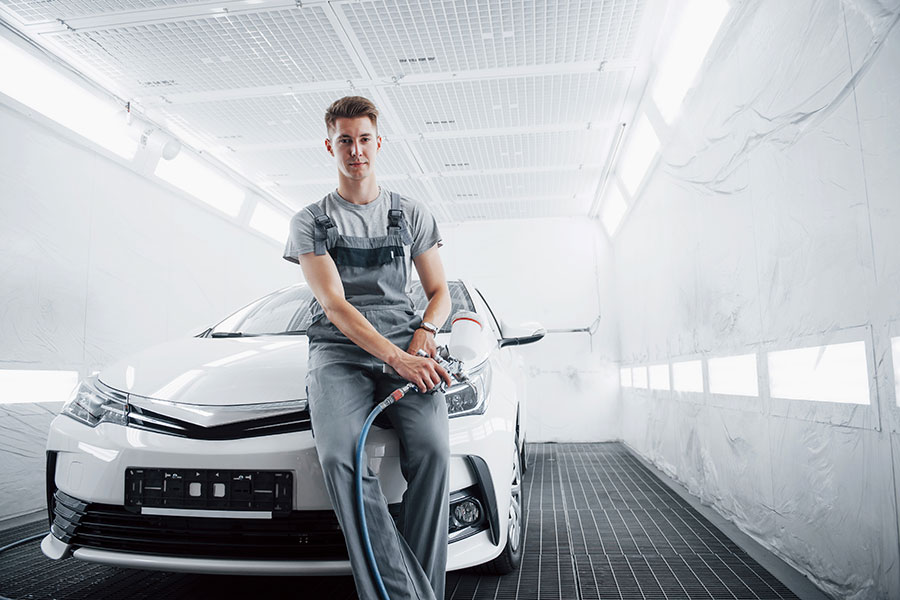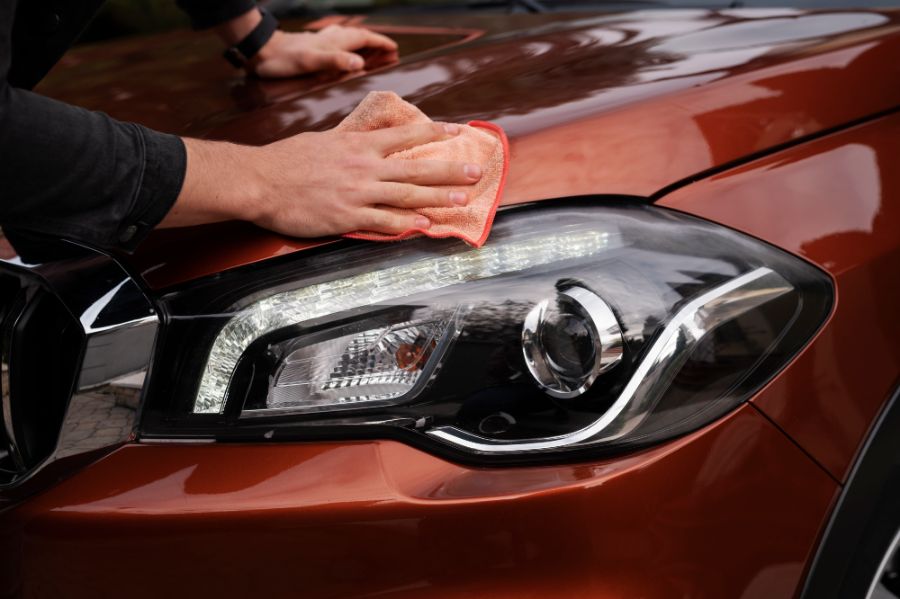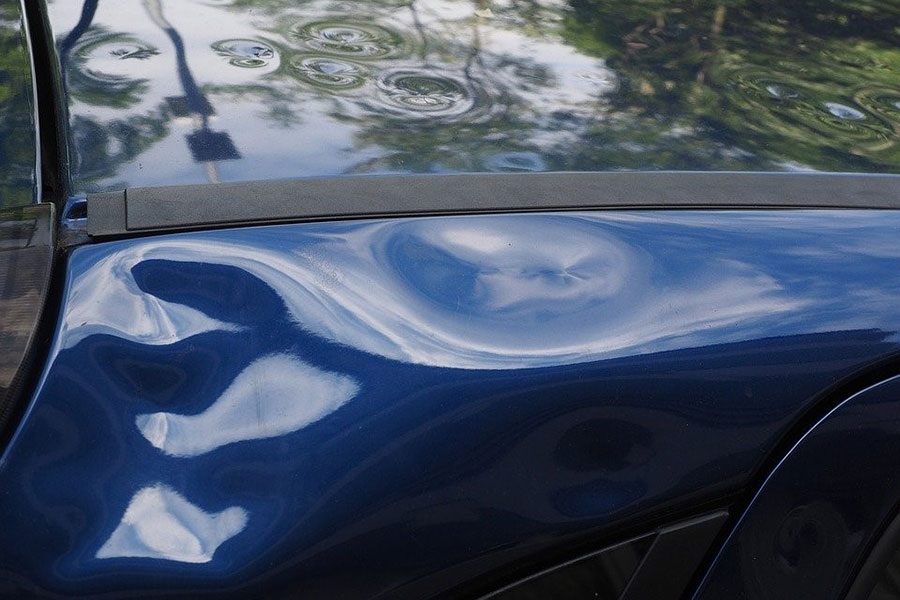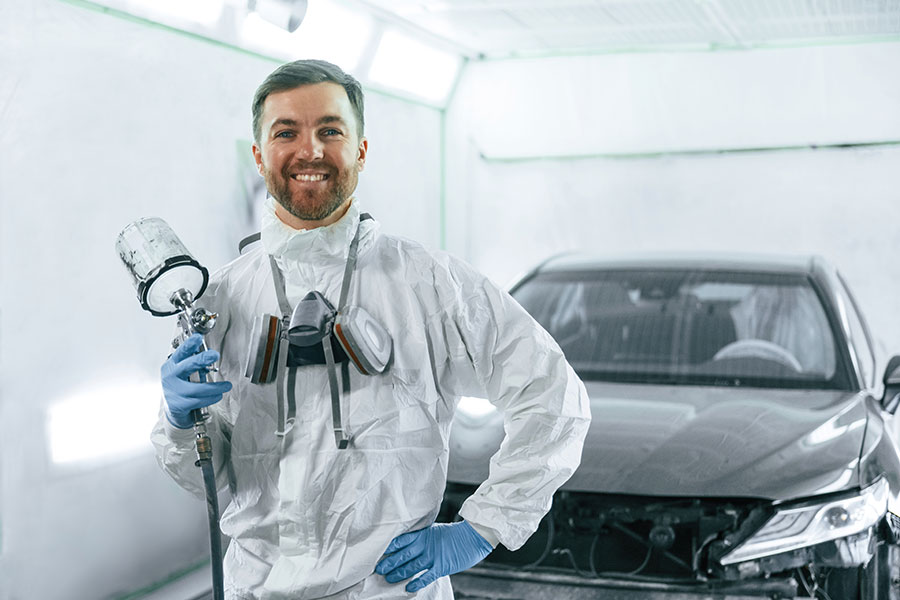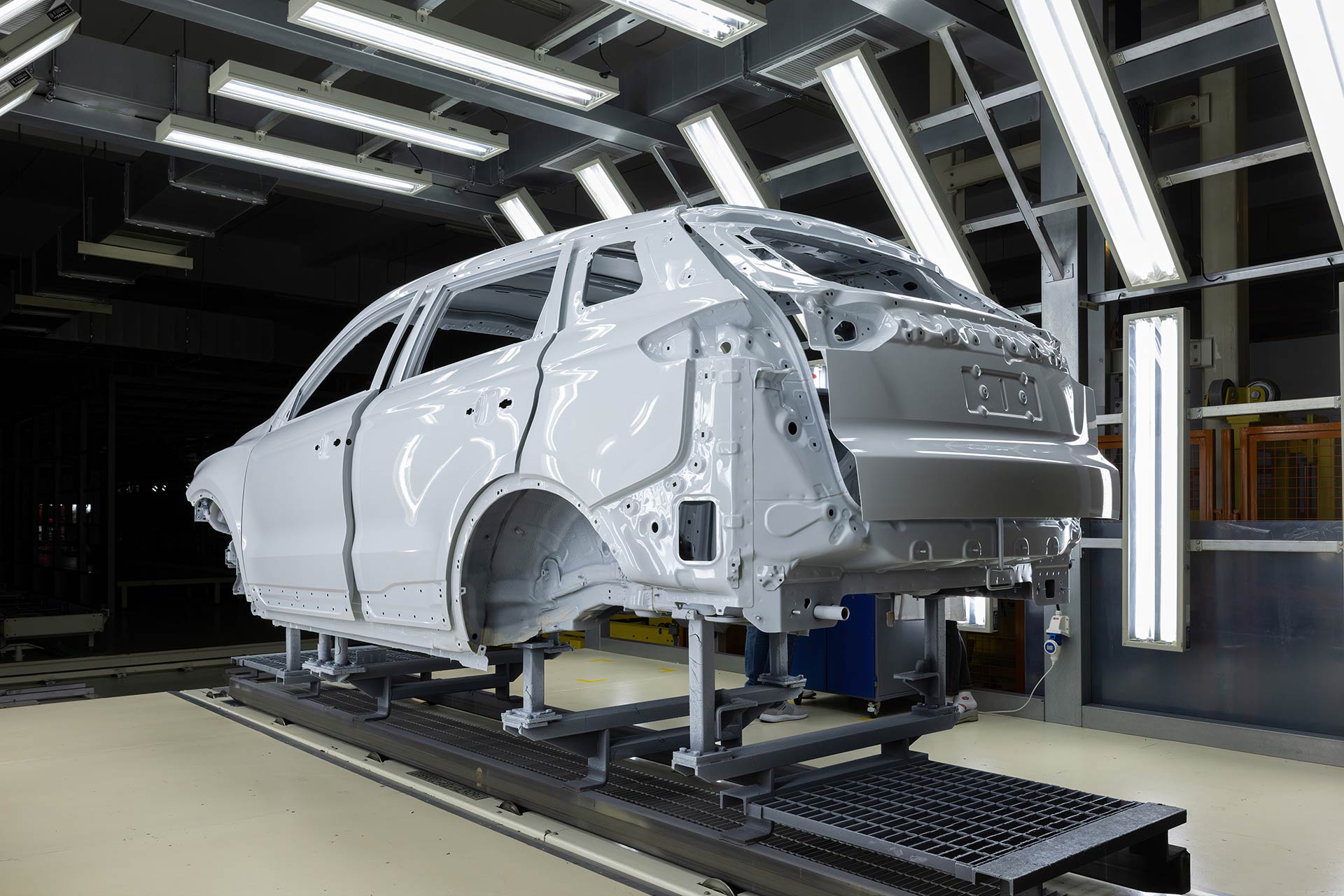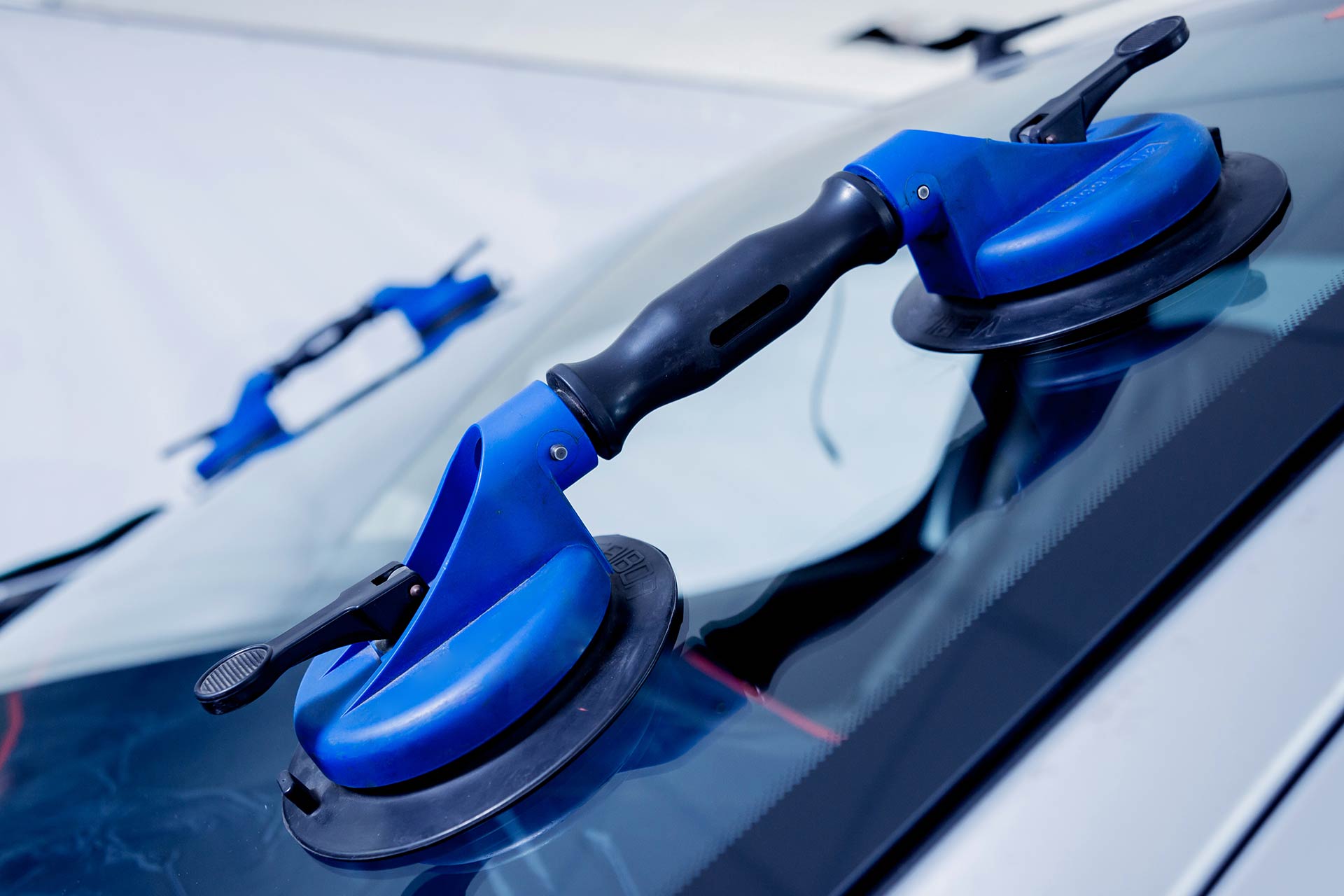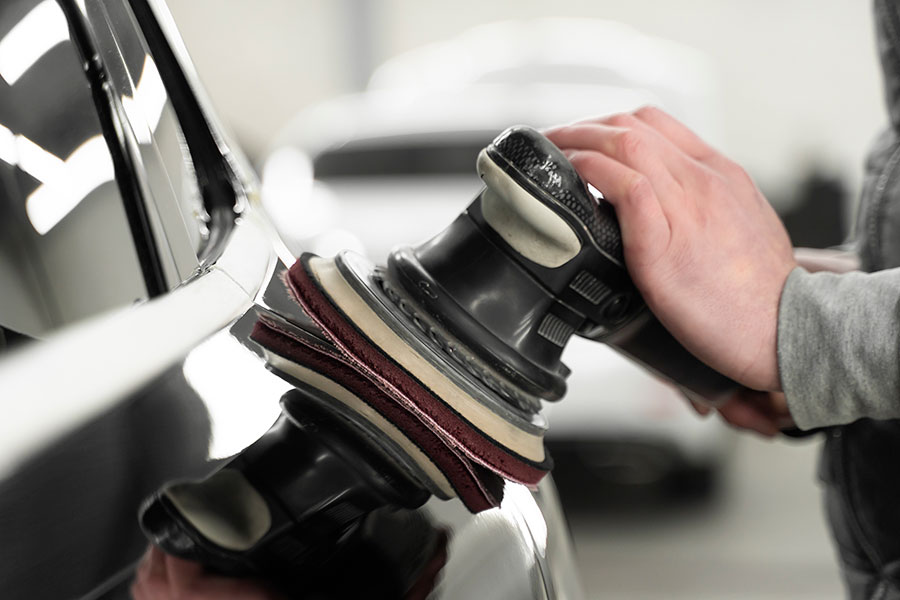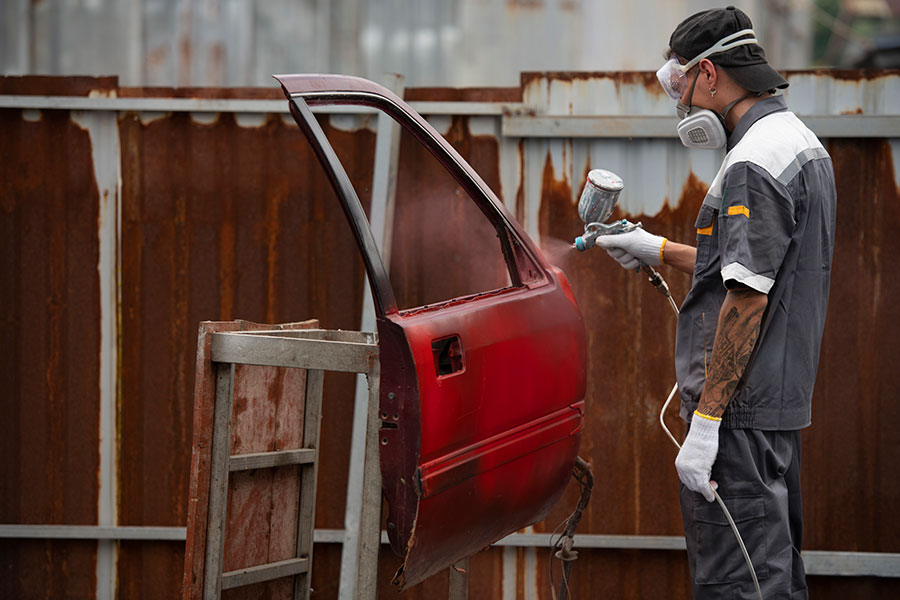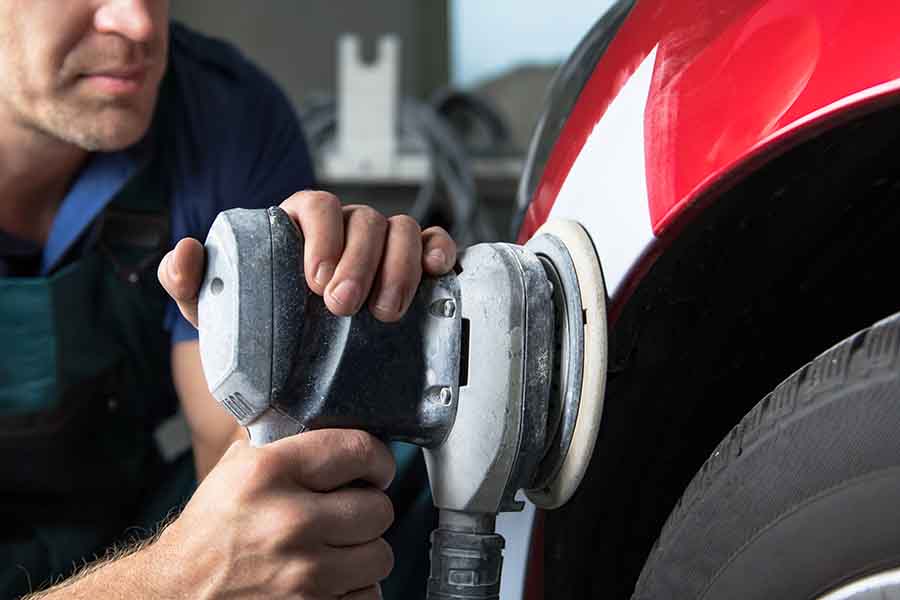For decades, drivers have faced the challenge of finding reliable collision repair shops after car accidents. It's not just about fixing dents and scratches; it's about restoring safety and peace of mind. In a world where cars have evolved from simple machines to complex systems requiring expert care, selecting the right repair service is more crucial than ever. With so many options out there, how do you choose the best? This post dives into what makes a collision repair shop stand out from the rest, ensuring your vehicle is in capable hands. From quality of workmanship to customer service and beyond, we've got you covered.
Understanding Collision Repair Needs
Severity Assessment
Identifying the severity of vehicle damage is crucial. It dictates the repair scope. Not all impacts warrant extensive repairs. Some might only need minor touch-ups.
First, professionals inspect the vehicle. They look for visible and hidden damages. This step is essential. It ensures nothing gets overlooked. After inspection, they categorize the damage as minor, moderate, or major.
Minor damage often involves superficial scratches or dents. These are usually quick fixes. Moderate damage might affect more than the surface, requiring parts replacement. Major damage impacts the vehicle's structure. It demands comprehensive repairs.
Cosmetic vs Structural
Understanding the difference between cosmetic and structural repairs guides service selection. Cosmetic repairs focus on the vehicle's appearance. They address scratches, dents, and paint jobs. These are important for maintaining a car's look and resale value.
Structural repairs go deeper. They involve the vehicle's frame and foundation. This type of repair ensures the car operates safely after an accident. Experts use specialized equipment to assess and fix structural issues.
Choosing the right repair type is vital. It affects both safety and aesthetics. A professional assessment helps in making this decision.
Total Loss Recognition
Recognizing when a vehicle is a total loss aids in making informed decisions about repair versus replacement. Insurance companies declare a car a total loss when repair costs exceed its current value. This doesn't always mean it's irreparable. Yet, financially, it might not make sense to proceed with repairs.
Owners face a critical choice here. They can accept a settlement from their insurance or opt to repair the car at their own cost. Knowing the vehicle's value and potential repair costs is key in this situation.
Deciding between repairing or replacing a totaled vehicle depends on various factors. These include sentimental value, potential future expenses, and personal preferences.
Types of Vehicle Damage
Dents and Scratches
Dents often result from minor collisions. They can vary in size but don't usually affect a vehicle's operation. However, they can lead to rust if not fixed. Scratches might seem minor but can expose metal parts. This exposure accelerates rusting.
Repairing these damages promptly preserves the car's appearance. It also prevents the spread of rust, which can cause more significant issues later.
Frame Damage
Frame damage is more serious. It affects the car's structural integrity. This type of damage often happens in severe collisions. It requires specialized equipment to fix.
A car with frame damage might look fine outside. Yet, it could be unsafe to drive. Professionals at collision repair shops assess and repair this damage. They ensure the vehicle is safe again.
Minor vs Major Damage
Minor damages include small dents and light scratches. They are easier and cheaper to repair. Major damages involve deep dents, large scratches, or frame damage. These require more time and money to fix.
Minor damages might not seem urgent but can reduce a vehicle's value over time. Major damages can make a car unsafe. They significantly lower its resale value too.
Addressing all damages, big or small, helps maintain your car's safety and value.
Long-Term Issues
Ignoring small damages can lead to bigger problems. Rust can spread from a small scratch or dent to larger areas. This weakens the vehicle's structure over time.
Regular maintenance and timely repairs prevent long-term issues. They keep your car looking good and functioning well.
DIY vs Professional Repair
DIY Risks
DIY repair on collision damage often seems like a cost-saving option. Yet, it carries significant risks. Without the right tools and expertise, one might worsen the vehicle's condition. This approach can lead to incomplete repairs or even compromise the car's structural integrity.
Many overlook hidden damages that are not visible to the untrained eye. Such oversight can endanger everyone in the vehicle.
Cost Comparison
When considering cost-effectiveness, DIY repairs could save money for minor cosmetic issues. However, for more extensive damage, professional services often prove to be more economical in the long run. Professionals can source parts at lower prices and guarantee their work, adding value.
For significant collision damage, DIY attempts might initially seem cheaper but can lead to costly corrections later.
Professional Diagnostics
Professional diagnostics stand out as a critical benefit of choosing expert repair services. Technicians use advanced tools to uncover all damage, ensuring nothing is missed. This thoroughness is vital for safety and vehicle longevity.
Professionals also provide warranties on their repairs, offering peace of mind that is rarely achieved through DIY methods.
Exploring Repair Methods
Traditional Techniques
Traditional repair methods have been the cornerstone of collision repair for decades. These processes often involve body filling, sanding, and repainting to restore a vehicle's appearance after an accident. Body fillers are used to fill in dents and make the surface level.
Sanding then smooths out the filler material, preparing it for painting. Lastly, repainting covers the repaired area to match the vehicle's original color. This method, while effective for significant damages, can be time-consuming and may not always result in a perfect match.
Modern Approaches
The introduction of paintless dent repair (PDR) marked a significant advancement in collision repair technology. PDR is best suited for minor dents and dings where the paint surface is intact.
Technicians use specialized tools to gently massage the dent from behind the panel, restoring its original shape without needing filler or paint. This technique is faster and more cost-effective than traditional methods, preserving the original paint and avoiding color mismatches.
Parts Quality
Choosing between OEM (Original Equipment Manufacturer) and aftermarket parts is crucial in collision repairs. OEM parts are made by the vehicle's manufacturer and guarantee a perfect fit and optimal performance. However, they can be significantly more expensive than aftermarket alternatives.
Aftermarket parts, produced by third-party companies, are often more affordable but might not always offer the same quality or fit as OEM parts. The decision between OEM and aftermarket parts depends on factors like budget constraints and the desired quality of repair.
Choosing a Repair Shop
Research Reputation
Before settling on a repair shop, it's important to do your homework. Look up local shops online and read reviews. Previous customers often share their experiences, highlighting both the good and bad. This can give you insight into the shop's reliability and quality of work.
They should also check turnaround times. Fast service is great, but not if it sacrifices quality. Find a balance that works for you.
Visit Shops
Seeing is believing. Take the time to visit a few top choices in person. A clean and well-organized shop usually reflects professionalism and attention to detail in their work.
Notice how staff interact with customers and each other. Polite and professional communication is a good sign of a well-run business.
Compare Estimates
Getting detailed repair estimates is crucial. They allow you to compare costs and services between different shops. Ensure the estimates break down the cost of materials, labor, and any additional charges.
Ask questions about any parts you don't understand. A reputable shop will be transparent and willing to explain.
Certifications and Reviews
Certified Technicians
Certified technicians stand as the backbone of top-notch collision repair shops. Shops boasting certifications from ASE (Automotive Service Excellence) or I-CAR (Inter-Industry Conference on auto collision repair) ensure that their technicians have passed rigorous tests and have proven skills in various aspects of auto repair. This certification is a solid indicator of a shop's commitment to quality and expertise.
Choosing a shop with certified professionals offers peace of mind, knowing your vehicle is in capable hands. These technicians follow industry-standard procedures to restore your car to its pre-accident condition, if not better. Their training encompasses the latest automotive technologies and repair techniques, ensuring they can handle complex repairs with precision.
Online Reviews
Navigating online reviews is another crucial step in selecting the right collision repair shop. Websites like Yelp, Google, and Angie's List provide a platform for customers to share their experiences. Positive reviews often highlight quick turnaround times, customer service excellence, and satisfaction with the final results. On the other hand, negative feedback can alert you to potential red flags, such as delays, unexpected costs, or subpar repair quality.
When reading reviews, look for patterns. A single negative review among hundreds of positive ones might be an outlier. However, recurring complaints about specific issues should not be ignored. They indicate areas where the shop may fall short of expectations.
Repair Warranties
Warranties on repair work are a significant consideration when choosing a collision repair shop. A warranty reflects the shop's confidence in its workmanship and materials used. Most reputable shops offer warranties that cover anything from paint jobs to bodywork for a specified period or even for as long as you own the vehicle.
This added protection gives you peace of mind long after the repairs are completed. It ensures that if any issues arise related to the repair work, the shop will address them at no additional cost to you.
Communication and Costs
Clear Communication
Clear communication with your chosen collision repair shop is crucial. It ensures you stay informed about the repair process and any changes that might occur.
After selecting a shop based on certifications and reviews, your next step is to establish a reliable line of communication. This means getting regular updates on the status of your vehicle's repairs. You should know when work begins, how it's progressing, and when you can expect completion.
Effective communication helps avoid surprises or delays. It also builds trust between you and the repair shop.
Transparent Pricing
Understanding the cost of repairs is just as important as the quality of the work. The best collision repair shops provide transparent pricing. They offer detailed breakdowns of labor and parts costs.
Before repairs start, ask for an itemized quote. This should list all charges. Look for shops that are upfront about their pricing structure. They should explain why each part and service costs what it does.
Transparent pricing helps you compare costs between shops. It also ensures you're not overcharged for parts or labor.
Negotiation Tactics
Sometimes, the initial quote for repairs might be outside your budget. That doesn't mean you have no options.
Negotiating with repair shops can lead to better rates or alternative repair solutions. Don't hesitate to ask if there's room to adjust the price. Explore options like using aftermarket parts instead of OEM (Original Equipment Manufacturer) parts to save money.
Remember, negotiation is about finding a solution that works for both parties. Be open to suggestions from the repair shop that might bring down costs without compromising on quality.
Insurance Claims Process
Initial Reporting
After a collision, the first step is to report the incident to your insurance company. This step is crucial and should be done as soon as possible. You'll need to provide details about the accident and the extent of the vehicle's damage.
The insurance company will then give you a claim number. Keep this number handy for all future references. They may also guide you on selecting collision repair shops that are within their network.
Assessment Phase
Next, an insurance adjuster will assess the damage to your car. This evaluation determines how much the insurance company will cover for repairs.
It's important to remember that you have the right to choose the repair shop. However, going with one recommended by your insurer can simplify the process. These shops usually have a direct billing arrangement with insurance companies.
Adjuster Evaluation
During the adjuster's evaluation, they will inspect your car and provide an estimate for repairs. This is when you should communicate any concerns about additional damages that might not be visible.
Insurance adjusters aim to ensure repairs are done efficiently and cost-effectively. But remember, their initial estimates may not cover all necessary repairs. It's not uncommon for repair shops to find more issues once they start working on the car.
Repair Approval
Once the assessment is complete and all parties agree on the scope of work, the insurance company will approve the repairs. The chosen collision repair shop can then begin fixing your vehicle.
At this stage, effective communication between you, the insurance company, and the repair shop is key. It helps avoid any misunderstandings about what repairs are covered under your policy.
Direct Shop Communication
Many top-tier collision repair shops work directly with insurance companies to streamline the claims process. This direct communication can significantly reduce your stress and ensure that repairs begin promptly.
These shops handle all paperwork related to the claim on your behalf. They also negotiate necessary adjustments in repair costs directly with insurers. This collaboration ensures that repairs meet both your standards and those of your insurance provider.
Final Remarks
Navigating the aftermath of a collision can feel daunting, but finding the right repair shop makes all the difference. You've learned how to assess your repair needs, understand the types of damage, and the value of professional over DIY fixes. With insights on repair methods, how to pick a top-notch shop, and navigating certifications, reviews, and costs, you're now equipped to make informed decisions. Insurance claims don't have to be a headache either, with the right communication strategies in place.
Remember, your car deserves expert care to get back on the road safely. Don't settle for less—choose a repair shop that meets all your criteria and trust your vehicle in the hands of professionals who prioritize quality and efficiency. Take action today, start researching with these tips in mind, and ensure your car gets the best possible care. Your safety, satisfaction, and peace of mind are worth it.
Frequently Asked Questions
How do I know if a collision repair shop is trustworthy?
Look for certifications from recognized industry organizations and read customer reviews. Certifications demonstrate a commitment to quality and ongoing training, while positive reviews can indicate reliable service and customer satisfaction.
What types of vehicle damage require professional repair?
Significant structural, mechanical, or safety-related damages often necessitate professional repair. Minor dents or cosmetic issues might be suitable for DIY, but complex damage should always be assessed by experts.
Can I perform collision repairs myself?
For minor cosmetic issues, DIY might be feasible. However, professional repair is recommended for more significant damage to ensure safety and maintain your vehicle's value. Professionals have the tools and expertise necessary for complex repairs.
How do I choose the best collision repair shop?
Consider shops with high-quality certifications and positive customer reviews. Also, evaluate their communication and transparency regarding costs and the repair process. A reputable shop will clearly explain your options and provide detailed estimates.
Why are certifications important for collision repair shops?
Certifications indicate that the shop has met specific industry standards for training and quality of work. They also show a commitment to staying updated with the latest repair techniques and technologies, ensuring your vehicle is repaired correctly.
How does the insurance claims process work with collision repairs?
Typically, you'll need to report the accident to your insurance company, which may then recommend approved repair shops. However, you have the right to choose your own shop. The chosen facility will assess the damage, provide an estimate, and coordinate with your insurance for coverage approval.
What should I consider regarding communication and costs at a repair shop?
Choose a shop that offers clear, upfront communication about the repair process, timeline, and costs. Transparency is key to avoiding unexpected charges and ensures you understand what repairs are necessary and why they are needed.
